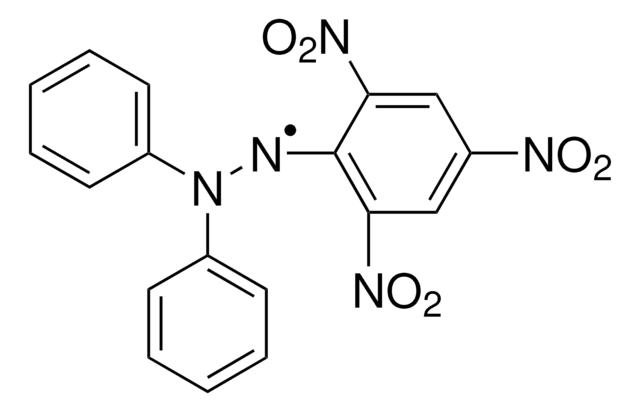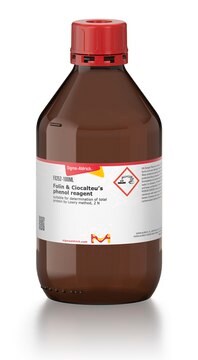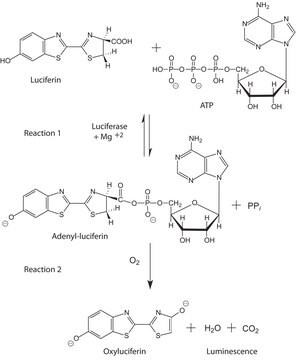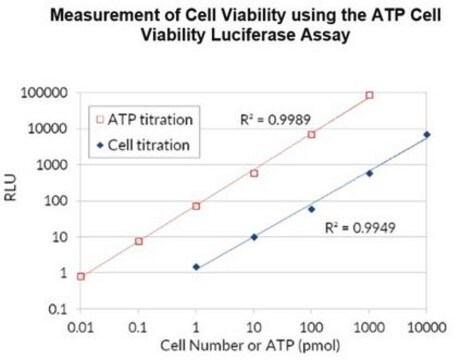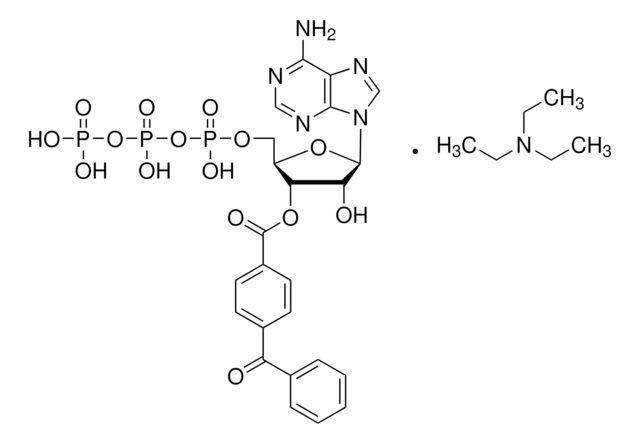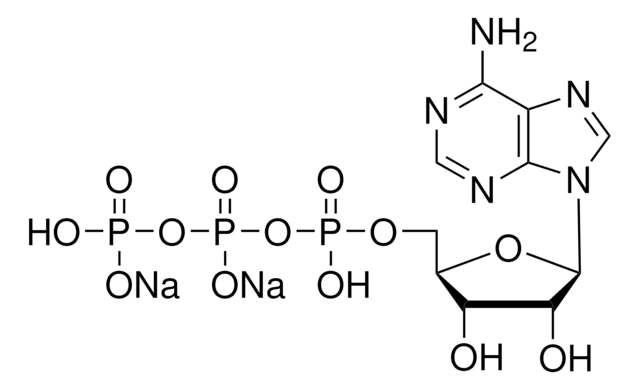FLSAR
Somatic cell ATP releasing reagent
for ATP determination
Sign Into View Organizational & Contract Pricing
All Photos(1)
About This Item
UNSPSC Code:
41106305
NACRES:
NA.51
Recommended Products
Quality Level
usage
sufficient for ~1000 assays
packaging
vial of 10 mL concentrate
storage temp.
−20°C
Application
Somatic cell ATP releasing reagent has been used:
- for the measurement of adenosine triphosphate (ATP) in tissues and cultured cells
- to measure ATP content in oocytes
- to lyse the cells to measure ATP and adenosine diphosphate (ADP) content
Somatic cell ATP releasing reagent is an ATP determination reagent used in application such as bioluminescent determination of ATP in somatic cells. Use with kits such as Adenosine 5′-triphosphate (ATP) bioluminescent somatic cell assay kit (FLASC).
Reconstitution
Reconstitute with sterile water.
signalword
Warning
hcodes
Hazard Classifications
Aquatic Acute 1 - Aquatic Chronic 2 - Eye Irrit. 2
Storage Class
12 - Non Combustible Liquids
wgk_germany
WGK 2
flash_point_f
Not applicable
flash_point_c
Not applicable
ppe
Eyeshields, Faceshields, Gloves, type ABEK (EN14387) respirator filter
Certificates of Analysis (COA)
Search for Certificates of Analysis (COA) by entering the products Lot/Batch Number. Lot and Batch Numbers can be found on a product’s label following the words ‘Lot’ or ‘Batch’.
Already Own This Product?
Find documentation for the products that you have recently purchased in the Document Library.
Customers Also Viewed
Hydrogen sulfide improves cardiomyocyte function in a cardiac arrest model
Garcia NA, et al.
Annals of Transplantation : Quarterly of the Polish Transplantation Society, 22(4), 285-285 (2017)
Glutamate dehydrogenase (GDH) regulates bioenergetics and redox homeostasis in human glioma
Zhang J, et al.
Testing, 5(4), 1-12 (2016)
Supplementation of maturation medium with L-carnitine improves cryo-tolerance of bovine in vitro matured oocytes
Chankitisakul, Vibuntita et al.
Theriogenology, 79(4), 590-598 (2013)
Prolonged exposure to insulin suppresses mitochondrial production in primary hepatocytes
Liu H Y, et al.
Test, 284(21), 14087-14095 (2009)
Ugochukwu Nnodu et al.
Journal of applied toxicology : JAT, 28(8), 1016-1020 (2008-07-16)
Pentachlorophenol (PCP) is used as a wood preservative and is found in human blood and urine. PCP causes significant decreases in the tumor-killing (lytic) function of human natural killer (NK) cells, a critical immune defense. The current study examined the
Our team of scientists has experience in all areas of research including Life Science, Material Science, Chemical Synthesis, Chromatography, Analytical and many others.
Contact Technical Service